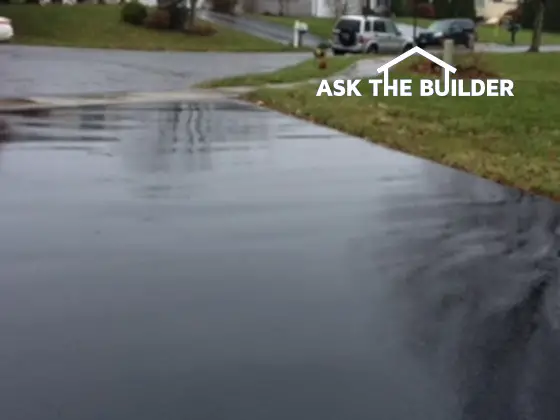Blacktop’s Concrete-like Properties
Asphalt Concrete
Blacktop and concrete have some very similar properties. They both are a combination of ingredients. Concrete consists of gravel, sand and cement, cement being the material that holds the sand and gravel together. Blacktop consists of gravel, sand and asphalt. Asphalt, which occurs naturally and is a residual product of the crude oil refining process, is the glue that holds together the gravel and sand found in blacktop.
Sunlight and air (non-polluted) does not harm concrete. In fact, the carbon dioxide in air actually makes concrete stronger with age (especially in its first year!) Blacktop, however, is harmed by exposure to sunlight and air. This is the primary reason blacktop should be sealed on a regular basis.
Cracks in Blacktop
Many people do not realize that blacktop is marketed as a flexible pavement. It can actually stretch to some degree. This flexibility is derived from the asphalt which holds together the sand and gravel. Asphalt, when used in blacktop, is actually called asphalt cement. It is an unusual material because its viscosity (ability to flow like a liquid) actually changes with temperature. When cold, the asphalt cement can get hard. When hot the asphalt behaves like a thick maple syrup. This quality allows the finished product, blacktop, to stretch in certain situations. I have witnessed this phenomena at numerous bus stops in my city. The pavement at bus stops is often rutted right where the bus picks up passengers. This rutting is caused by the pressure of the bus tires on the pavement each time the bus brakes. The asphalt pavement is actually pushed or bulldozed ever so slightly each time the bus stops in hot weather.
When asphalt is exposed to air it begins to lose this quality. The lightweight oils in asphalt actually evaporate and the asphalt oxidizes. When this happens, the asphalt becomes brittle. Brittle asphalt is much more susceptible to cracking than fresh, flexible asphalt.
Learn what to ask your contractor in my
Asphalt/Blacktop/Tar & Chip Installation & Repair Checklist.
I offer a 100% Money Back Guarantee.
Cracks in blacktop frustrate many homeowners. A new crack-free driveway, as we discussed earlier, is gorgeous. There are two primary causes of cracks in blacktop: shrinkage and structural. Shrinkage cracks happen naturally because the blacktop loses volume (evaporating lightweight oils) early in its life. Structural cracks develop when the blacktop base is undersized and unable to handle the concentrated loads placed upon it. Remember, most residential blacktops are low-strength. They derive their strength from the gravel base beneath the blacktop. A structural crack will occur when the base gives more than the blacktop can stretch.

This is what blacktop looks like just after it's sealed. It looks like glossy black paint. Copyright 2018 Tim Carter
This is where sealers enter the picture. Assuming that your driveway has an adequate base, you need to do two things after it is installed: slow down the loss of the lightweight oils after the new blacktop has cured; and protect the asphalt from the damaging effects of the ultraviolet (UV) rays in sunlight.
Column B74